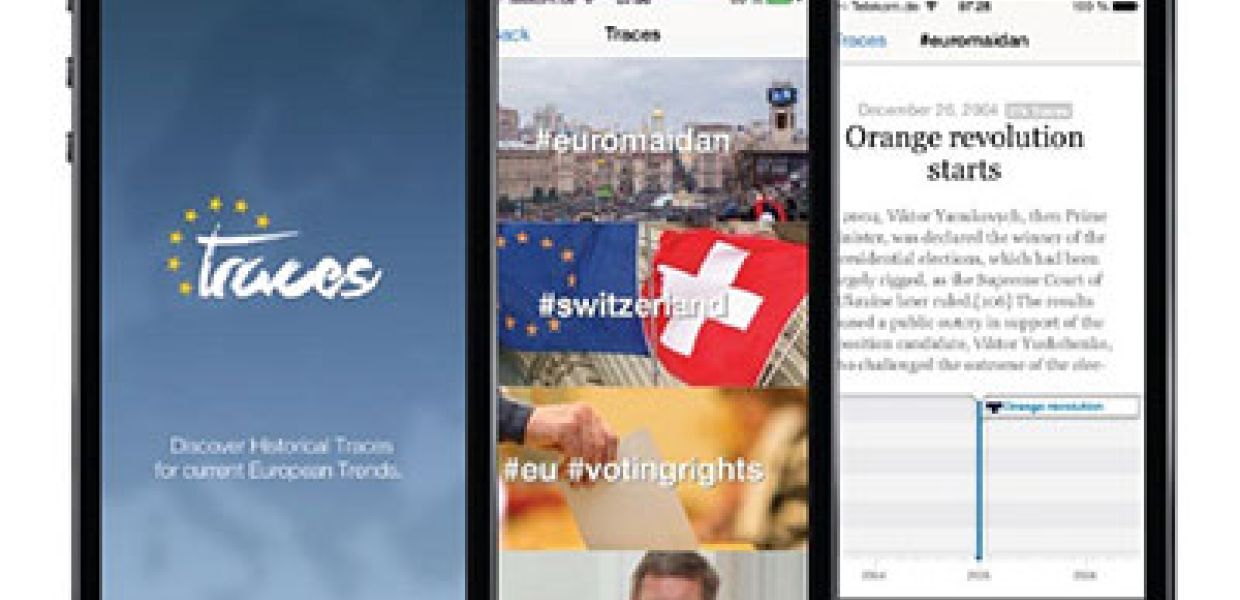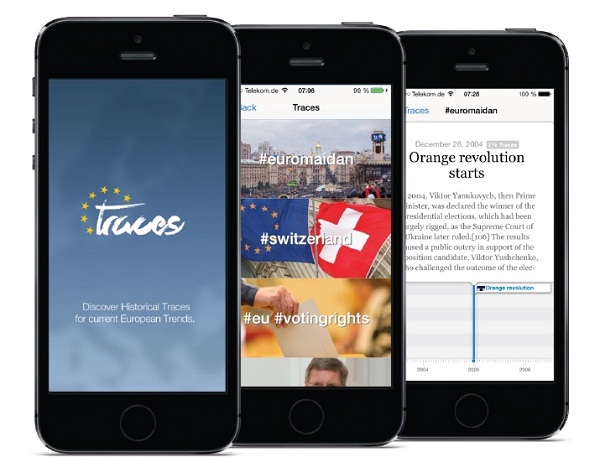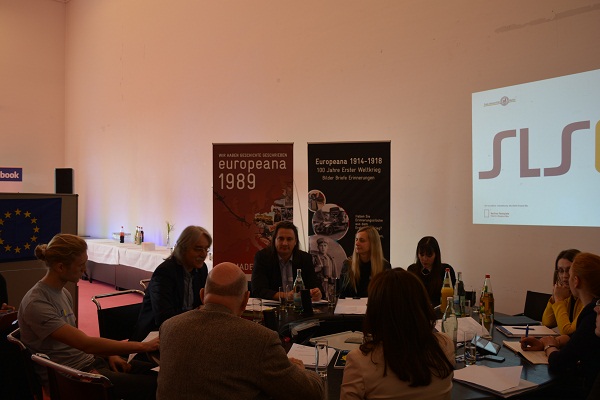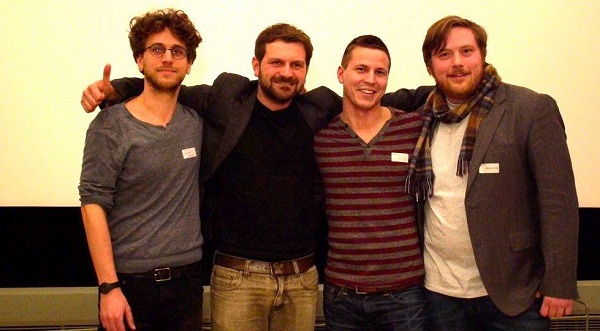Facebook awards history app that will use Europeana’s collections

Traces, an app for discovery of historical data and events relating to current trending topics in Europe, won first place in the hackathon during the Social Learning Space event on 27-28 February in Berlin. The app will use the Europeana API and content in its fully operational version. The winning team was awarded a trip to the Facebook office in California and attendance to their app development conference.

A screenshot of the Traces app. Europeana FlickrCC-BY-SA
Social Learning Space (SLS) 2014 was a joint event of the Berlin Media Professional School and Facebook Europe. It aimed to create concepts and prototypes of digital tools for transferring European spirit and community (i.e. on topics such as social media, everyday life, war and peace 1914-2014, mobility, migration). The first day started with a welcome by Prof. Dr. Klaus Siebenhaar, Director of Berlin Media Professional School and Sir Richard Allan,Chief of Public Policy Facebook Europe to more than 70 attendees, including policy makers, cultural and educational professionals, researchers, students, journalists and media producers. The participants then split into four workshops on the themes of 100 years war and peace in Europe, European identity, Curating Europe and Debating Europe. They discussed relevant concepts and developed possible product ideas for the hackathon the following night.
The first panel on 100 years war and peace in Europe linked warfare memories from the 20th century with the current conflicts in Ukraine and Syria and focused on lessons learned, social issues (stereotypes, identity) and information needs around war and peace. Frank Drauschke, Fact & Files, Germany, made a valuable contribution to the discussions on the personal experiences of war and political change in Europe by presenting Europeana 1914 – 1918 and Europeana 1989 projects.

The War and Peace workshop in progress. Europeana Flickr CC-BY-SA
All workshop outcomes were fed into the brainstorming session from 19:00-21:00 for the hackathon attendees. In addition to panel product ideas, the briefing included external resources. I highlighted Europeana collections (including 1914-1918) as possible inspiration and content sources for developers and introduced Europeana API as a useful tool for their creative projects. Finally, I outlined Europeana business incubation projects as a growth opportunity for the hackathon prototypes with a clear business model. (Here is the presentation in German)
The night-long hacking resulted in five prototypes (produced by five teams) ranging from games to news and educational apps. All prototypes were evaluated by a professional jury panel and voted for by participants. The history app Traces developed by the team Zeitfenster (Time Window) received both the judges’ and audience award and won the big prize – a trip to the Facebook office in California and participation in the Facebook app-development competition.

The winning team ‘Zeitfenster’. Europeana Flickr CC-BY-SA
Traces lists current European issues and trends in social networks like Facebook or Twitter and traces them back to already existing historically rich information from other sources and databases on the web, such as Wikipedia and Europeana, to their informational origins.
Based on a timeline, the application shows users relevant multimedia contents related to the historical course of a topic each day. Thus Traces changes the cultural and historical awareness of current issues and provides access to a better understanding of ongoing debates, discussions and opinions in Europe.
See more event photos on Europeana Flickr .
